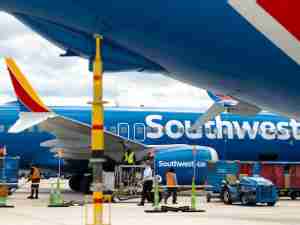Countries in the Middle East moved to shutter borders on Monday amid fears over the fast-spreading new strain of the coronavirus that the U.K. has said is “out of control.”
Saudi Arabia, Kuwait and Oman halted international flights and closed borders for a week, while Israel won’t allow foreigners—with the exception of diplomats—to enter the country. Israelis returning from the U.K., Denmark and South Africa will be sent to government-run quarantine sites.
All major stock indexes in the region dropped, in line with global markets. Dubai’s main equities index led the losses, slumping the most in more than seven months, on concerns that additional travel curbs may inflict further damage on the emirate’s tourism sector.
The United Arab Emirates, home to Eithad and Emirates airline, hasn’t yet announced new travel restrictions. Air traffic between the U.K. and Dubai was expected to climb by a third in December following the creation of a travel corridor.
In Africa, Morocco, Tunisia and Algeria halted all flights to and from the U.K. Tunisia also suspended flights to and from Australia and South Africa.
Airlines:
- Sharjah-based Air Arabia said on Monday it will halt flights from Morocco to the U.K. until further notice
- Abu Dhabi-based Etihad said it’d require all passengers from the U.K. to present a negative PCR test within 72 hours validity of their flight departure from Dec. 24











